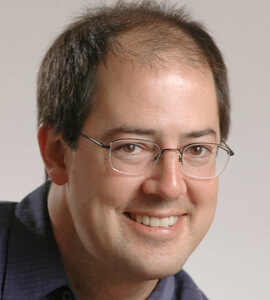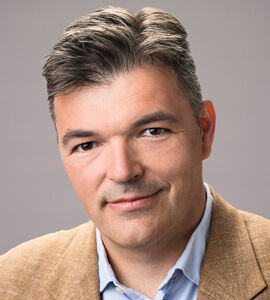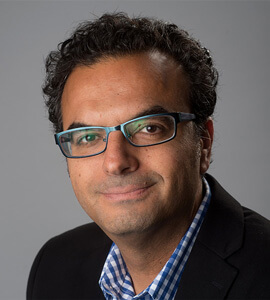Award Information
Established in 2019, this award will recognize and honor SSCS members in their early/mid-career, who are making significant contributions to education in the field of solid-state circuits using innovative approaches. The award aims to highlight distinguished and unique educational methods or programs that have a broad impact on the education of our community. Some examples include, but are not limited to, education with outreach beyond the candidate’s institution, unique teaching methods via a variety of media more appealing to the current and future generations of students, motivational lab development, open source textbooks or lectures, open-source software development, instruction that reaches out to high-school students and teachers, and programs geared toward a diverse group of students, among others.
Those who receive this award must be a current SSCS Member in good standing.
One award will be given annually, but only if a suitable awardee is identified. The award’s cash prize may be split among multiple recipients. The winner of this award will receive a plaque and honorarium of $5,000.
The call for nominations will be made in our primary member communications, the Solid-State Circuits Magazine and Society Newsletter, or other member-wide communications tool that may be employed in the future. The nomination package consists of: (1) a one to two-page description of the candidate’s current educational contributions in the field of solid-state circuits; (2) a list of publications, classes or programs that support the nomination; (3) a maximum of three letters of recommendation from people familiar with the candidate’s educational contributions.
This award will be managed by the SSCS Awards Committee, which consists of an appointed Chair, who will select additional members of the Committee or appoint sub-committees as needed to manage the award winner selection.
Award candidates will be accepted during the year prior to the year the award is to be presented. The deadline for submissions is October 15, 2024. The winner of the award will be notified in the year prior to the year the award is to be presented to allow the recipient to prepare travel arrangements to the conference where he/she has chosen to receive the award.
The SSCS Awards Committee or its appointed sub-committee shall evaluate nominations as to whether the nominee’s contribution is significant and merits consideration. A slate of selected nominees will be presented by the Awards Chair to the SSCS Administrative Committee and the winner will be selected by the SSCS Administrative Committee by vote.
This award will be presented at the plenary session of one of the SSCS financially sponsored conferences, at the choice of the recipient.
Submission Instructions
A platform called OpenWater is required to upload nomination packages. For detailed instructions on how to use the OpenWater platform, click here.
The following materials must be uploaded as part of the nomination package:
- A one to two-page description of the candidate’s current contributions and the vision of his or her research and development and how it will advance the field of solid-state circuits (PDF only, 25 MB Max)
- A list of the candidate’s publications or patents to support this nomination (PDF only, 25 MB Max)
In addition, letters of recommendation must be submitted (maximum of three letters, PDF only, 25 MB Max). The nominator will submit names of those providing a letter of recommendation in the OpenWater system, and then the OpenWater system will send an email to those people asking them to upload their letter of recommendation.
Important Dates and Deadlines
This year’s application window is from 8/1/2024 at 12:00 AM to 10/15/2024 at 11:59 PM (UTC-05:00, UTC-04:00 Daylight.) If you have any questions, please use the form here.
2024 IEEE Solid-State Circuits Society Innovative Education Award Winners
Kristofer S. J. Pister received the B.A. degree in applied physics from the University of California at San Diego, San Diego, CA, USA, in 1986, and the M.S. and Ph.D. degrees in electrical engineering from the University of California, Berkeley (UC Berkeley), Berkeley, CA, USA, in 1989 and 1992, respectively.,From 1992 to 1997, he was an Assistant Professor of electrical engineering with the University of California at Los Angeles, Los Angeles, CA, USA, where he helped in the development of the graduate MEMS curriculum and coined the phrase Smart Dust. Since 1996, he has been a Professor of electrical engineering and computer sciences with UC Berkeley. From 2003 to 2004, he was on leave from UCB as the CEO and then the CTO of Dust Networks, a company he founded to commercialize wireless sensor networks. He has participated in the creation of several wireless sensor networking standards, including Wireless HART (IEC62591), IEEE 802.15.4e, ISA100.11a, and IETF RPL. His research interests include MEMS, microrobotics, autonomous microsystems, and low-power circuits.

Kristofer S. J. Pister
Borivoje Nikolić (Fellow, IEEE) received the Dipl.-Ing. and M.Sc. degrees in electrical engineering from the University of Belgrade, Belgrade, Serbia, in 1992 and 1994, respectively, and the Ph.D. degree from the University of California at Davis, Davis, CA, USA, in 1999.,In 1999, he joined the Department of Electrical Engineering and Computer Sciences, University of California at Berkeley, Berkeley, CA, USA, where he is currently a National Semiconductor Distinguished Professor of Engineering.,Dr. Nikolić received the NSF CAREER Award in 2003, the College of Engineering Best Doctoral Dissertation Prize, the Anil K. Jain Prize for the Best Doctoral Dissertation in Electrical and Computer Engineering at the University of California at Davis in 1999, and the City of Belgrade Award for the Best Diploma Thesis in 1992. For work with his students and colleagues, he has received the best paper awards at the IEEE International Solid-State Circuits Conference, the Symposium on VLSI Circuits, the IEEE International SOI Conference, the European Solid-State Device Research Conference, the European Solid-State Circuits Conference, the S3S Conference, the Design Automation Conference, and the ACM/IEEE International Symposium of Low-Power Electronics. From 2014 to 2015, he was a Distinguished Lecturer of the IEEE Solid-State Circuits Society. He was a Technical Program Chair for the 2022 Symposium on VLSI Technology and Circuits. He is currently a General Co-Chair for the 2023 IEEE Symposium on VLSI Technology and Circuits.

Borivoje Nikolić
Ali M. Niknejad (Fellow, IEEE) received the B.S.E.E. degree from the University of California at Los Angeles, Los Angeles, CA, USA, in 1994, and the master’s and Ph.D. degrees in electrical engineering from the University of California at Berkeley, Berkeley, CA, USA, in 1997 and 2000, respectively.,He is currently a Professor with the EECS Department, UC Berkeley, the Faculty Director of the Berkeley Wireless Research Center (BWRC). His research interests include wireless and broadband communications and bio-medical imaging and sensors, integrated circuit technology, device physics and compact modeling, and applied electromagnetics.,Prof. Niknejad and his coauthors received the 2017 IEEE Transactions on Circuits and Systems—I: Regular Papers Darlington Best Paper Award, the 2017 Most Frequently Cited Paper Award (2010–2016) at the Symposium on VLSI Circuits, and the CICC 2015 Best Invited Paper Award. He was a recipient of the 2012 ASEE Frederick Emmons Terman Award for his textbook on electromagnetics and RF integrated circuits. He was a co-recipient of the 2013 Jack Kilby Award for Outstanding Student Paper for his work on an efficient Quadrature Digital Spatial Modulator at 60 GHz, the 2010 Jack Kilby Award for Outstanding Student Paper for his work on a 90-GHz pulser with 30 GHz of bandwidth for medical imaging, and the Outstanding Technology Directions Paper at ISSCC 2004 for co-developing a modeling approach for devices up to 65 GHz. He is also a Co-Founder of HMicro and an Inventor of the REACH Technology, which has the potential to deliver robust wireless solutions to the healthcare industry and a Co-Founder of RF Pixels, a 5G technology startup.

Ali M. Niknejad
Past Recipients
| Year | Recipient |
|---|---|
| 2023 | N/A |
| 2022 | Behzad Razavi, University of California, Los Angeles |
| 2021 | Dr. Payam Heydari, University of California, Irvine |
| 2020 | Professor Peter Kinget, Columbia University, New York |



